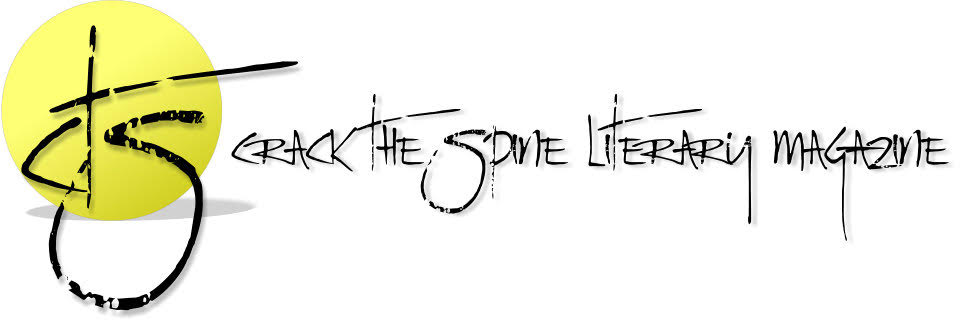Age: 26
Indianapolis, IN via Denton, TX
MFA, Butler University
The Writer
How long have you been writing?
I quit my career as a teacher to make the leap, as it were. That was two years ago. It feels longer.
Do you have a specific writing style?
To me, the world is a very confusing, gorgeous, violent place. I hope my writing reflects these preoccupations, at least. Whether that amounts to anything you could call a style, that’s for the fancy people to decide.
What is your greatest challenge as a writer?
My professors at Butler all think my biggest weakness is something different, which is absolutely horrifying. Right now I’m just trying not to be overindulgent.
The Work
Tell us about your work in Crack the Spine.
Bestiary: Texas is a poem that imagines five short scenes involving the wildlife I saw growing up.
Is there a main theme or message in this piece?
Anyone familiar with the history of Texas knows it’s a place built on conquest, murder, and slavery. That’s just the awful truth of it. Yet it’s also a place of incredible beauty. That dichotomy kept pulling me in. How do we love something and simultaneously live with the horror that comprises it?
What inspired this work?
My wife and I moved to Indiana from Texas right after we got married. After some writing workshop, I was asking her questions about our hometown, the things we missed. She doesn’t think of herself as a writer, but I tried to really encourage her to put some words down. She somehow flipped it on me and got me to start writing about home.
The Methods
What are your thoughts on writing at a computer vs. writing longhand?
Lately I’ve been finding some success in writing longhand and transcribing everything at the end of my workday. There’s a kind of freedom in pen and paper that isn’t there on a word processor. I can take a break and doodle a penis, or a cat. Those little detours can be fruitful, or at least not as aggressively time-consuming as the internet.
What is your usual starting point for a piece?
Pretty much everything I write is borne out of some tiny, powerful impulse. I want to write about my sister, or about masculinity, or about marriage. The story (or poem) grows out of that abstraction until it becomes its own thing.
How do you react to editorial rejections of your work?
It’s so, so easy to feel stung by rejection. After all, this is me I’m putting in the hands of strangers. The thing to remember is that editors and reading staff all have their own backgrounds, their own tastes. You won’t hit the mark for everyone. It’s simple math. All you can do is start the next draft.
What is your best piece of advice on how to stay sane as a writer?
Fucking. Writing
The Madness
Who is your favorite author?
I learned more about manhood and family and magic from Gabriel Garcia Márquez than from anybody else.
What is the greatest occupational hazard for a writer?
Poverty.
What’s in that cup on your desk?
Arizona Green Tea / Hendricks & tonic / Shiner Bock. Not all at once, obviously.
How many of your characters have you ended up killing off?
Literary fiction is often so gutless. Life is bloody, messy, confusing. I like it when fiction reflects that. So to answer your question: a lot.
“No Thanks” or “I’ll have another”?
Always yes.
The Beatles or The Rolling Stones?
Leonard Cohen.
Additional Reading on John

